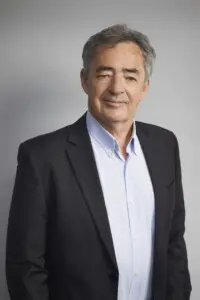
Dr David Brereton
Tell us about yourself.
These days, I guess you could describe me as a ‘recovering academic’. I retired from the University of Queensland in 2016, but I still try to stay abreast of the burgeoning research literature on mining and sustainability. I have a particular interest in the work that is being done around mine closure and post-mining transitions. This is one of the most important challenges facing the global mining sector, and also one of the most complex.
What inspired you to become a scientist?
My formal academic training was mainly in the field of political science, but I prefer to use the more generic term ‘applied social scientist’.
I realised early on that what I most enjoyed doing was studying ‘real world’ problems and exploring how we can do better as a society in addressing these problems. I am a strong believer in evidence-based approaches to policy development and implementation, although my training as a political scientist has also made me alert to the ways in which political factors (both internal and external to organisations) can often constrain and distort policy outcomes.
For me, the greatest satisfaction one can get from being a researcher is to be able to point to instances where your work has helped ‘made a difference’ at the level of policy and, most importantly, practice.
What’s your current position?
I am currently a Non-Executive Director of CRC TiME. I also chair the CRC’s Research Committee.
The Board has overall responsibility for strategy formulation and for setting corporate direction and goals for the CRC. The Board also monitors the performance of the CRC against contracted milestones and other key indicators and provides advice to the CEO where appropriate.
The Research Committee oversees the research activities of the CRC and advises the Board and CEO on strategic issues and individual projects.
How does being involved with CRC TiME help support your love of science?
Being a member of the CRC TiME Board keeps me connected with the leading-edge research that is being undertaken in Australia on mine closure and regional transitions. I have also really appreciated the opportunity to engage with researchers from diverse disciplinary backgrounds and with industry and government practitioners who are working to improve policy and practice in this space.

